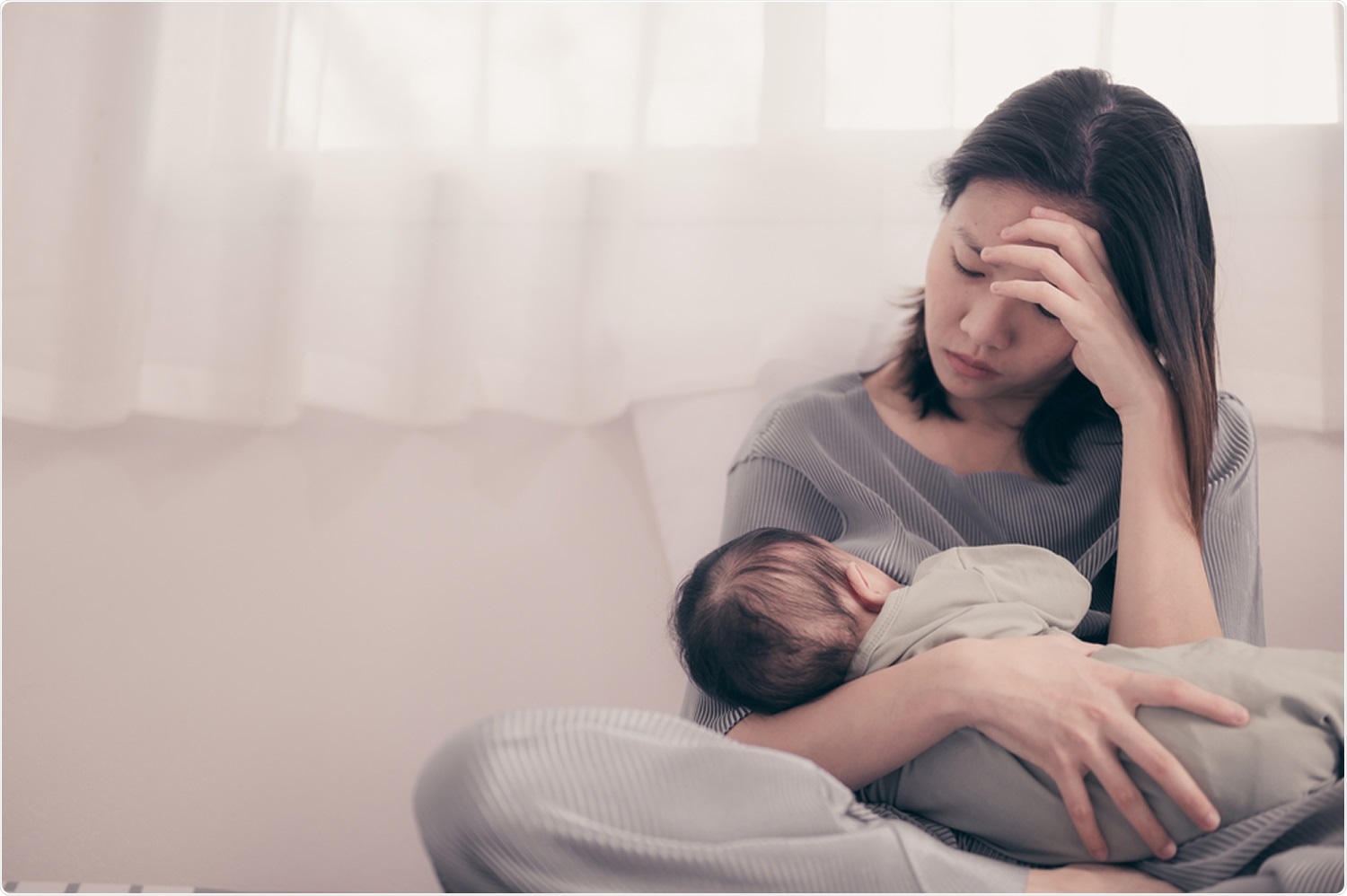The rapid outbreak of severe acute respiratory syndrome coronavirus-2 (SARS-CoV-2) around the world has resulted in the coronavirus disease 2019 (COVID-19) pandemic. SARS-CoV-2 is an RNA virus belonging to the family Coronaviridae, is highly infectious, and causes mild to severe symptoms. Besides COVID-19 vaccination, other non-therapeutic preventive measures such as social distancing, strict country-wide lockdowns, use of facemasks, etc., have been implemented to manage SARS-CoV-2 transmission, such that the mortality rate could be reduced.

Postnatal Women and COVID-19 Restrictions
According to the Japanese tradition, pregnant women give birth in their hometown. They stay with their parents before and after delivery to obtain support from them. This tradition is known as ‘Satogaeri bunben’. However, such travels had been banned to prevent the spread of the SARS-CoV-2 infection. Postnatal women have been identified as one of the vulnerable groups affected by this pandemic, as most of the supporting systems or services have been canceled at birth facilities following the protocols of infection control.
In September 2020, a survey was conducted by the Japanese Society of Obstetrics and Gynecology (JSOG), revealing that 92% of the facilities canceled birth and parenting classes, 80% did not allow partners’ attendance during birth, and 86% forbade visits from family and friends during the postpartum hospital stay. Although these measures lowered the risks of COVID-19 infection, they also subjected this group to a higher possibility of postnatal depression. Also, in Japan, pregnant women were under the immense pressure of not contracting the infection because many facilities transferred pregnant women if they showed asymptomatic or symptomatic infection.
A meta-analysis reported that under normal conditions, the global pooled prevalence of postpartum depression was 17.7%. In the current situation, a significant increase in the risk of anxiety was reported among pregnant women or women in their perinatal period. Although many reports are available that use Edinburgh Postpartum Depression Scale (EPDS) to evaluate the prevalence of postpartum depression among postpartum women, who delivered in the pre-pandemic period, research is scarce regarding its prevalence among women who gave birth during the pandemic.
Increased Risk of Postpartum Depression during COVID-19 Pandemic
One of the common reasons that increases the risk of postpartum depression is lack of social support. Social support offers individual protection, particularly when a person is undergoing stressful life circumstances, and the COVID-19 pandemic has been particularly stressful for perinatal women.
A new study published on the medRxiv* preprint server has focused on the effect of various social restrictions or lack of social support on women who delivered and raised babies during the pandemic.
The current study is a part of the “Japan COVID-19 and Society Internet Survey (JACSIS),” an ongoing longitudinal, population-based internet-based questionnaire survey. For this part of the study, researchers conducted a cross-sectional study for postpartum women between October 2019 and October 2020.
After adjusting for potential confounders, the current study reported that several social restrictions such as lack of support from family and friends, loss of opportunities to receive infant health checkups and vaccinations, and loss of autonomy concerning delivery or breastfeeding, were significantly connected with postnatal depression. This finding is in line with previous studies that reported the cancelation of planned formal support and lack of informal childcare support were highly correlated with prenatal depression and postpartum depression during the COVID-19 pandemic.
Scientists revealed that 20-30% of mothers who gave birth during the pandemic lacked opportunities of being educated about childcare and breastfeeding by doctors, nurses, and midwives, during the hospital stay. Also, 25% of mothers experienced a loss of autonomy concerning delivery or breastfeeding. These groups were found to be twice more likely to develop postpartum depression than those who received accurate information from professionals.
The authors recommended advice and other communication via online platforms, by healthcare professionals, for postpartum women. This could help decrease the level of anxiety faced by this vulnerable group during the pandemic. This study reported the highest prevalence of postpartum depression among women, who delivered a baby between October 2019 and March 2020, 7-12 months after birth. Previous studies based on meta-analysis have indicated that the prevalence of postpartum depression usually decreases with time.
Conclusion
Some of the limitations of the current study include the fact that it failed to determine a causal relationship due to its cross-sectional study design. Another shortcoming of this study might be bias sampling as it was based on an online survey. Additionally, some participants with postpartum depression were not able to respond appropriately, which may cause an underestimation of the prevalence of postpartum depression. The current study revealed that compared to the pre-pandemic situation, a significant increase in postpartum depression prevailed during the COVID-19 pandemic. It showed the importance of both formal and informal support for pregnant women during the pandemic.
*Important Notice
medRxiv publishes preliminary scientific reports that are not peer-reviewed and, therefore, should not be regarded as conclusive, guide clinical practice/health-related behavior, or treated as established information.
- Tsuno, K. et al. (2021) The effect of social restrictions, loss of social support, and loss of maternal autonomy on postpartum depression in 1 to 12-months postpartum women during the COVID-19 pandemic, medRxiv, 2021.10.21.21265354; doi: https://doi.org/10.1101/2021.10.21.21265354, https://www.medrxiv.org/content/10.1101/2021.10.21.21265354v1
Posted in: Medical Research News | Medical Condition News | Women's Health News | Disease/Infection News
Tags: Anxiety, Baby, Breastfeeding, Coronavirus, Coronavirus Disease COVID-19, Depression, Gynecology, Healthcare, Hospital, Infection Control, Mortality, Obstetrics, Pandemic, Parenting, Postnatal Depression, Postpartum Depression, Prenatal, Prenatal Depression, Research, Respiratory, RNA, SARS, SARS-CoV-2, Severe Acute Respiratory, Severe Acute Respiratory Syndrome, Syndrome, Virus

Written by
Dr. Priyom Bose
Priyom holds a Ph.D. in Plant Biology and Biotechnology from the University of Madras, India. She is an active researcher and an experienced science writer. Priyom has also co-authored several original research articles that have been published in reputed peer-reviewed journals. She is also an avid reader and an amateur photographer.
Source: Read Full Article
